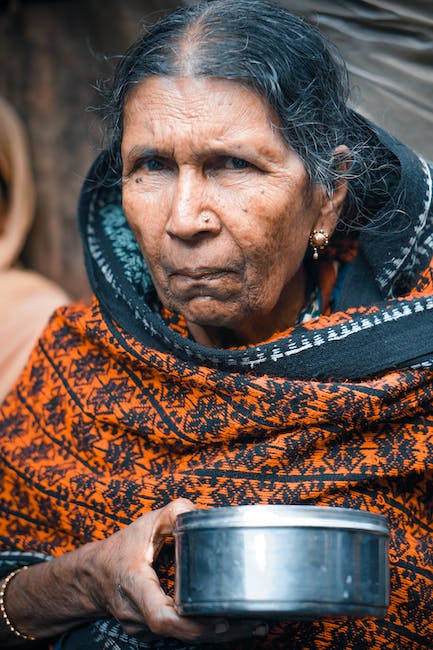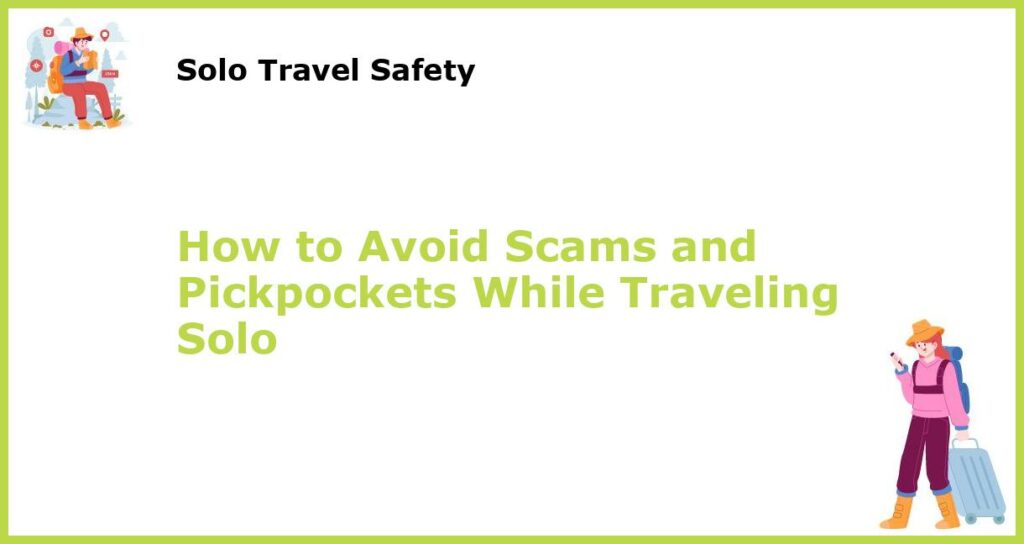Traveling solo can be an incredibly fulfilling experience, allowing you to explore the world on your terms and at your own pace. However, it also comes with its own set of unique challenges, such as staying safe and avoiding scams and pickpockets. While it’s impossible to eliminate all risks, there are steps you can take to reduce the likelihood of becoming a victim. In this article, we’ll discuss some practical tips for avoiding scams and pickpockets while traveling solo.
1. Research your Destination

One of the most important things you can do before traveling to a new destination is to research common travel scams and theft tactics. Every city or country has its own unique set of risks, and being aware of them can help you avoid falling prey to them. This is especially important if you’re traveling alone since you won’t have someone to watch your back.
Do some digging online before you go, looking for any travel advisories or warnings, as well as safety tips from the local tourist board and government websites. Take note of any areas or neighborhoods known for pickpocketing or scams and plan accordingly. Knowledge is power, and knowing what to expect can help you avoid becoming a victim.
2. Keep your Valuables Hidden

One of the best ways to keep your belongings safe while traveling is to avoid carrying all of your valuables with you at once. Keep your cash, credit cards, and passport in a safe place and only carry what you need for the day. When picking a bag, consider one that has a lock or combination as well as hidden pockets. Alternatively, you could use a money belt or neck wallet to keep your valuables out of sight.
When you’re out and about, avoid flashing your bag around and try to keep it by your side or in front of you, especially in crowded areas or on public transportation. Keeping your valuables out of sight is key to deterring pickpockets and thieves.
3. Stay Alert

Being aware of your surroundings is essential when it comes to avoiding thieves and scammers. Stay vigilant when in crowded places or on public transportation, as these are common areas for theft to occur.
It’s also a good idea to keep your guard up in areas known for pickpocketing or scams, such as tourist attractions or popular shopping areas. Keep your eyes peeled for anyone who seems to be following you or too close to you, and be wary of distractions that could be used as a ploy to steal from you.
4. Learn Basic Phrases

Learning basic phrases in the local language can go a long way toward helping you navigate your destination and avoid scammers who prey on tourists who appear lost or confused. This will not only make your travel experience smoother but also help you connect better with locals.
You don’t need to be fluent in a language to communicate; even learning a few words or phrases such as hello, goodbye, thank you, and excuse me can make a big difference. If you’re struggling with pronunciation, write it down in a notebook or use a language app to help you practice.
5. Dress like a Local

Dressing like a local can help you avoid drawing attention to yourself as a tourist. Research the local dress code and pack accordingly. Dressing inappropriately can make you stand out and make you a target for theft.
It’s also important to consider the weather and the type of activities you’ll be doing. Dressing for comfort should be your priority, but doing so in a way that blends in with the locals will help you avoid unwanted attention.
6. Avoid Public Displays of Wealth

Avoid flaunting your wealth, such as expensive jewelry or electronics, in public. Flashing these items can attract thieves and make you a target for pickpocketing or robbery.
If you must wear expensive jewelry or accessories, try to keep them low-key and avoid wearing them in unsafe areas. Likewise, if you carry expensive equipment such as cameras or laptops, keep them secured in your bag when not in use.
7. Ask for Advice from Locals

Asking locals for advice on how to avoid scams and other travel-related issues can help you gain valuable insights into your destination. Locals have a wealth of knowledge about their city or country and can offer tips on places to avoid, best practices, and how to get around.
Especially if you’re traveling alone, engaging with locals can also help you feel more connected to your destination and less isolated. Don’t be afraid to strike up a conversation with a friendly-looking local or ask for recommendations in coffee shops or restaurants.
8. Trust your Instincts

If something feels off, then it probably is. Trust your instincts and avoid situations that make you feel uncomfortable. It’s better to err on the side of caution than to become a victim of theft or scam.
If you feel uneasy about a person or a situation, try to move away or seek help. Don’t allow yourself to be pressured or intimidated into doing something you’re not comfortable with, and remember to put your safety first.
9. Use Common Sense

Using common sense and being cautious when interacting with strangers is crucial when traveling solo. Don’t accept offers that seem too good to be true, and always keep an eye on your belongings. Remember that thieves often work in pairs or groups, so be aware of your surroundings.
Don’t be too quick to trust people you’ve just met, especially if they seem over-friendly or insistent. Likewise, avoid sharing too much personal information with people you don’t know well or letting them tag along with you without a good reason.
10. Stay Sober

It’s easy to get caught up in the excitement of traveling, but drinking too much can make you more vulnerable and less aware of your surroundings. Stay sober while traveling solo to avoid becoming an easy target for theft or scam.
It’s okay to enjoy a drink or two, but always keep your wits about you. Be sure to have a plan for getting back to your accommodations safely, and avoid drinking so much that you can’t remember where you’re staying or how to get there.








 You might also be interested in those articles related to solo traveling
You might also be interested in those articles related to solo traveling